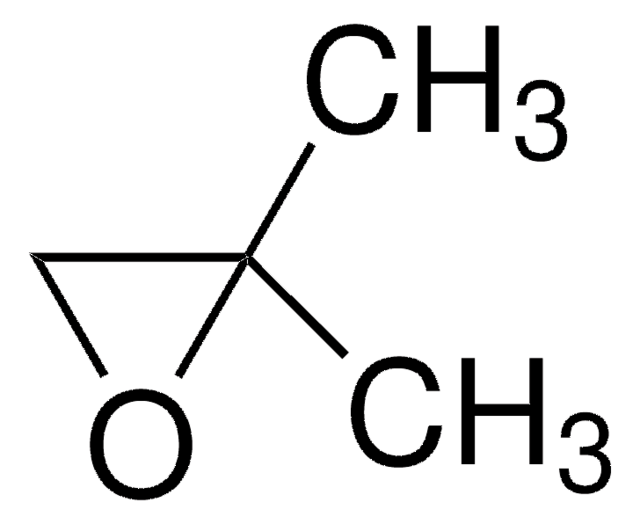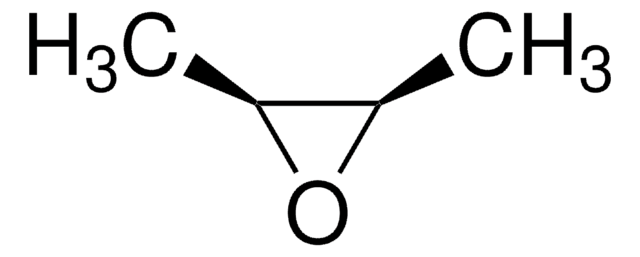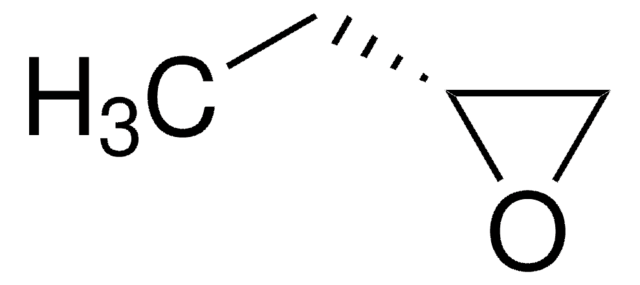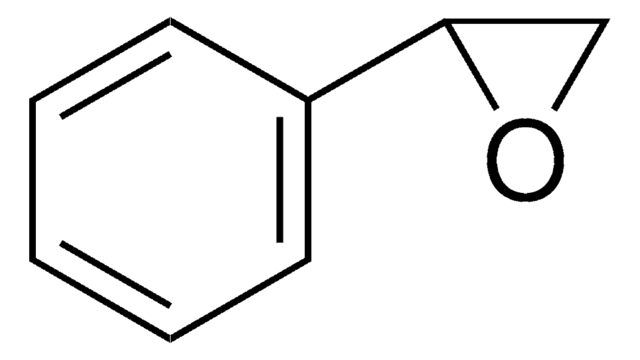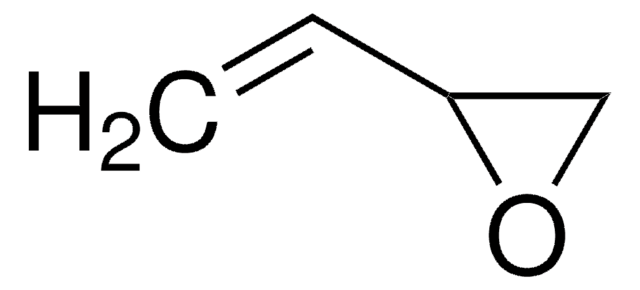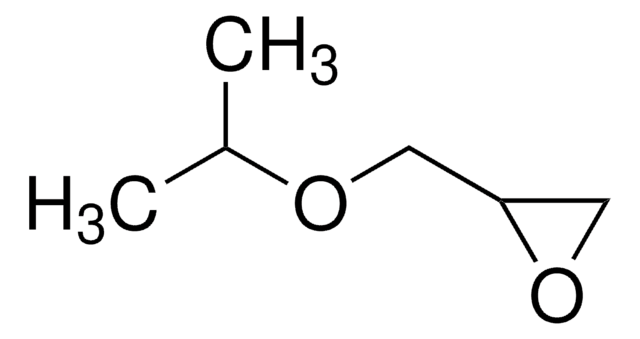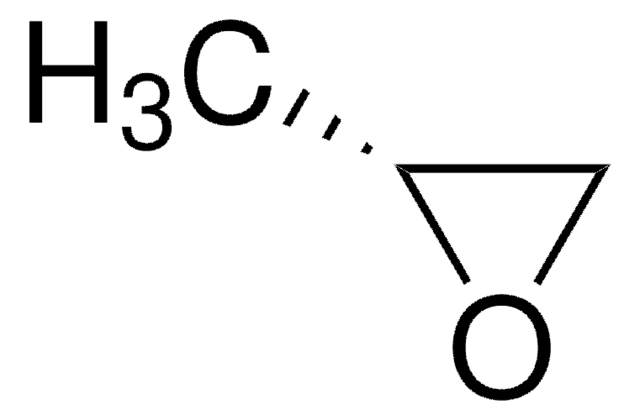109975
1,2-Epoxybutane
99%
Synonym(s):
α-Butylene oxide, 1,2-Butylene oxide, 1-Butene oxide, Ethyloxirane
About This Item
Recommended Products
vapor density
2.2 (vs air)
vapor pressure
140 mmHg ( 20 °C)
Assay
99%
autoignition temp.
698 °F
expl. lim.
19 %
refractive index
n20/D 1.384 (lit.)
bp
63 °C (lit.)
density
0.829 g/mL at 25 °C (lit.)
SMILES string
CCC1CO1
InChI
1S/C4H8O/c1-2-4-3-5-4/h4H,2-3H2,1H3
InChI key
RBACIKXCRWGCBB-UHFFFAOYSA-N
Looking for similar products? Visit Product Comparison Guide
Application
- As a monomer to synthesize novel initiators via ring-opening polymerization. These initiators can be used to prepare complex macromolecules such as grafted polyamides.
- To functionalize polyethyleneimine which is used in the synthesis of oxidation-stable adsorbents for CO2 capture.
Features and Benefits
- High polymerizability
- Low susceptibility to transfer reaction
- Ease of handling
Signal Word
Danger
Hazard Statements
Precautionary Statements
Hazard Classifications
Acute Tox. 4 Dermal - Acute Tox. 4 Inhalation - Acute Tox. 4 Oral - Carc. 2 - Eye Irrit. 2 - Flam. Liq. 2 - Skin Irrit. 2 - STOT SE 3
Target Organs
Respiratory system
Storage Class Code
3 - Flammable liquids
WGK
WGK 1
Flash Point(F)
5.0 °F - closed cup
Flash Point(C)
-15 °C - closed cup
Personal Protective Equipment
Choose from one of the most recent versions:
Already Own This Product?
Find documentation for the products that you have recently purchased in the Document Library.
Customers Also Viewed
Our team of scientists has experience in all areas of research including Life Science, Material Science, Chemical Synthesis, Chromatography, Analytical and many others.
Contact Technical Service

